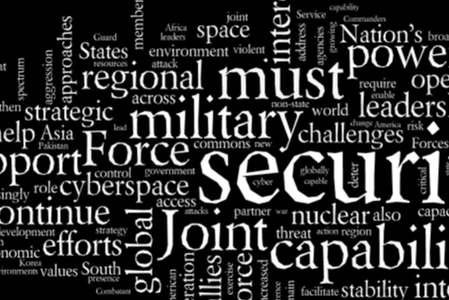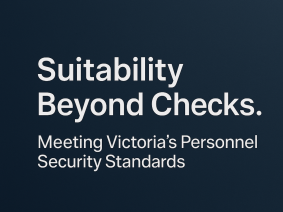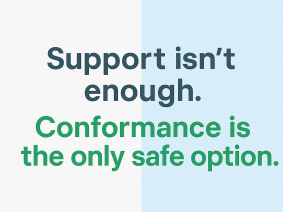When Academic Admission Discretion Meets National Security.
If you are part of a school that delivers highly specialised courses, which maybe technically UNCLASSIFIED, then know it maybe true that sensitive topics that involve Defence-related topics are crucial and central to the course outcomes and objectives.
For example, the Certificate IV in Government (Personnel Security) is the main vetting qualification for all Vetting Analysts – and also the proper qualification for Risk Assessors using the Australian Standards 4811-2022 for Workforce Screening. However, some TAFE and RTO’s Admission Departments won’t allow students to start the course without a letter of offer from an employer or the expectation of being employed by a vetting agency. Here we have an eager student locked out. AGSVA cannot endorse or approve any prospective students – so it becomes a catch 22.
Q. Have you ever thought about screening students’ background in order to safeguarding national security and that highly valued intellectual property and information?
Although many tertiary institutions have ‘minimum’ entry requirement for its courses, most admissions regulations also include other provisions, which includes restrictions to access certain courses or classes. For example, University Of Melbourne* includes “ensuring suitability of the applicant” as part of their ‘additional selection criteria’.
But …
Q1. How is suitability specifically determined, what is the actual process and what is / is not covered?
Q2. Who determines the threshold between an applicant being suitable and not?
Q3. What standards are used and are they consistently applied?
Your school may need to consider is Suitability Assessment – or even perhaps an AGSVA Security Clearance facilitation program. If you partner with Defence Primes and their supply chains as part of practicums, internships, or on-the-job placements & training – you may find that those work areas are security classified and require security cleared personnel or at the very least have students ‘trusted and vetted’ (ISM P10) before accessing their sensitive ICT systems.
We recommend using Australian Government’s Protective Security Policy Framework (PSPF) methodology and standards for determining suitability: factors like Honesty, Trustworthiness, Tolerance, Maturity, Loyalty and Resilience. These are the same qualities the Australian Government Security Vetting Agency (AGSVA) uses to determine the eligibility and suitability of a person to access classified (eg. SECRET, TOP SECRET) information.
Educational Institutions normally have the discretion# to refuse entry into a course based on information about the person which leads to a reasonable belief that the applicant should not be admitted.
A Suitability Assessment offers your Admissions Board that pertinent information to refuse a person entry into one of your courses. By having a vetting expert who vets students for suitability before you offer them a placement, using PSPF guidelines, mentioned above, is now a possibly.
Enter Cleard life. Its sister company, Crown Vetting, is a Defence Industry Security Program (DISP) Member and a leading vetting company in Australia. Crown Vetting has delivered thousands of official BASELINE, SECRET (NV1) and TOP SECRET (NV2 & PV) assessments. Our network of Vetting Officers are qualified and experienced in conducting background checks, as well as one-on-one interviews.
Additional benefits you will receive if you incorporate a suitability screening assessment – into your admissions determination process include:
- Increasing employer’s confidence that a graduate from your school is likely to be suitable to hold a security clearance, making them more desirable in the after-school employment marketplace.
- Decreasing the risk of a (yet-future) official security clearance process resulting in an adverse result – wasting a Sponsor’s time and money.
- Boosting the funding/subsidy model objectives by having employable graduates who are duly qualified and appropriately suitable to work inside Australia’s most sensitive defence programs.
- Stopping distinct types of ‘unsuitable’ students from acquiring Australian-Government-paid-for, Defence-centric training.
- Hindering students whose sole purpose is to return to their homeland with specialised knowledge.
- Reducing the risk of the unintended consequence of using Australian taxpayer’s money to inadvertently enhance foreign defence capabilities … a reputation nightmare.
- Demonstrating personnel security is a priority at the very start of a student’s career.
Enter Cleard Plus:
With recent DISP changes, your Institution may be eligible to have your defence-related course students leverage our expertise to facilitate, sponsor students AGSVA security clearances on their behalf. Security Clearances take time to process – and so with our Cleard Plus program, we speed up and smooth out that process. Having students holding an AGSVA national security clearance will propel them to being Security Clearance Ready; Employment Ready; Defence Ready.
DSPF 40.1 Para 7. There is no minimum level of security clearance for Defence industry and contractors. Clearance requirements for Defence industry and contractors are determined on the basis of their need to access classified information, networks, assets or secure areas.
More details about Cleard Plus can be found here:
Conclusion:
Please make contact with us on 02-6171-4171 for an obligation free confidential discussion.
Source:
* Para 22 http://www.unimelb.edu.au/__data/assets/pdf_file/0007/2024548/Academic-Board-Regulation.pdf
# Para 24.
_____________________________________
Read more:






